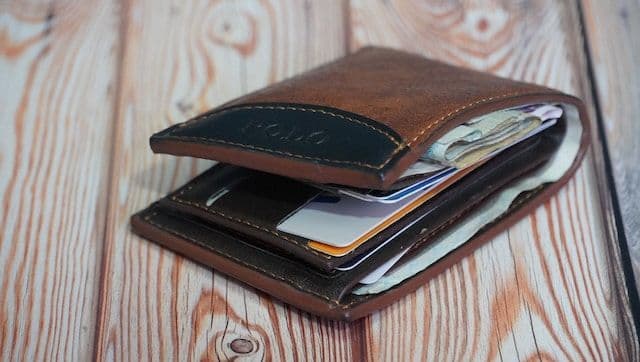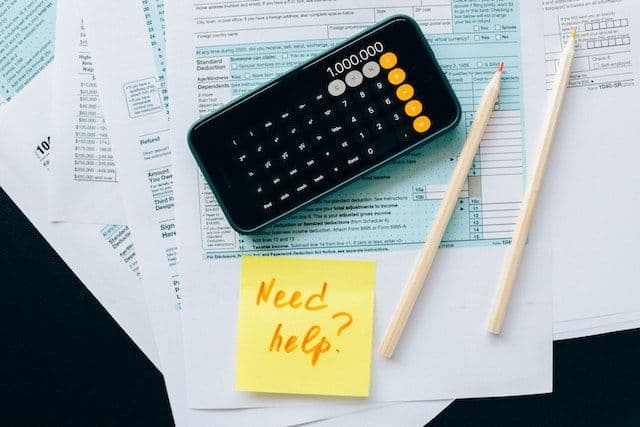Income Tax: How Much Can You Earn Before Paying?

For the 24/25 tax year, you can earn up to £12,570 between April 6th - April 5th without paying income tax.
In almost every country on earth, individuals have to pay taxes on the money they earn, which is known as income tax.
However, in most cases, there’s a minimum amount a person can make that goes untaxed, meaning you are only eligible to pay taxes if you earn over the specified untaxable income. This is called your taxable income.
Currently, the income tax personal allowance in the UK is £12,570, meaning those earning below this amount will not have to pay tax. Any earnings above this are subject to taxation.
What Is Income Tax?
Income tax is the tax paid on money earned. Depending on how much your income is, you will need to pay different rates.
With taxes, the government is able to function and fund public services.
For some people, there is no need to pay income tax. For example, if you earn below a certain threshold, you will not need to pay taxes. This value is known as a personal allowance.
Income Tax vs. Other Taxes
It’s important to note that income tax applies only to your earned income.
Other types of income, such as profits from selling property or investments, may be subject to capital gains tax, while inheritance tax applies to estates above a certain threshold.
Understanding these differences is important for better financial planning. But let's stick to income tax for now.
What Is The Personal Allowance Threshold?
The Budget states that the personal allowance is £12,570 and will stay at this number until April 2028.
Do I Earn Enough To Pay Tax?
If you earn more than the personal allowance threshold, you will need to pay tax on your income according to your relevant tax bracket.
However, you will also need to pay tax if you:
- Run a business, as you will need to pay tax on the profits
- Have savings and investments, as you will need to pay tax on interest and dividends
- Are a landlord, as you will need to pay tax on the rent you receive
How Much Income Tax Do I Have To Pay?
How much you earn determines the amount of tax that you pay. This is calculated using salary bands, meaning that you will pay more tax if your income is higher.
The salary bands for the tax year 2024/2025 are:
- £0 - £12,570: Earnings between £0 and £12,570 do not require any income tax to be paid. This is the tax-free personal allowance. Don’t use this as an incentive to not earn more than £12,570, as it is very difficult to survive on such a small amount of income.
- £12,571 - £50,270: The basic rate for income tax is 20%, and this applies to any earnings between £12,571 and £50,270.
- £50,271 - £125,140: The higher rate is 40%, affecting earnings between £50,271 and £125,140.
- £125,140+: For earnings over £125,140, individuals need to pay an income tax of 45%.
Consider National Insurance Contributions (NICs) Too
Even if you earn below the personal allowance threshold of £12,570 and don’t pay income tax, you might still need to pay National Insurance Contributions (NICs).
For the 2024/25 tax year, Class 1 NICs apply to earnings over £12,570 per year (£242 per week).
NICs are separate from income tax but contribute to state benefits such as pensions and unemployment support.
Am I Eligible For Any Income Tax Allowances?
Usually, you don’t pay Income tax on all income due to allowances - an amount of taxable income that you can earn each year without having to pay tax.
For example, there is a marriage allowance, where one partner can transfer some of their unused personal allowances to a spouse. For example, if your partner earns £11,000 and you’re a basic rate taxpayer, their spouse can use the remaining £1,257 of their personal allowance tax free.
If you are a higher earner, it is unlikely that you will be eligible for any personal allowance. For incomes of over £125,140, individuals have to pay tax on all their earnings as soon as they make their first pound.
For those earning over £100,000, they still have a personal allowance, but it reduces by £1 for every £2 of income.
It might seem rather complicated, and in truth, it is.
How Do I Calculate My Income Tax?
You do not need to pay income tax on all of your income - just the rate of tax on your income in the bracket. And remember, you only pay taxes on profits!
For example, if you earn £51,000 annually, you will need to pay:
No tax on the first £12,570 (rate of 0%)
Then, 20% tax on the amount of income between £12,571 and £50,270 (in this case, £37,700)
And 40% on the final £730 (£51,000 - £50,270)
You can use income tax calculators to gain a better understanding of how much tax you might owe in a given year.
How To Pay Income Tax
If you’re self-employed and earn over £1,000 in the financial year, you have to file a Self Assessment tax return to declare your earnings. Once you do that, you will be told what you need to pay and how to do it.
It's worth noting that you only pay tax on your profits - so make sure you write down any expenses you've incurred to fund your work.
Additionally, you’ll need to pay both Class 2 and Class 4 NICs, depending on your profit levels, making it important to keep accurate financial records.
Income Tax: How Much To Pay
In summary, the amount you can earn before paying tax in the UK is £12,570 until 2028. If you are earning below this amount, you do not need to worry about paying anything.
If you're self-employed, you will still have to do a tax return if you earn above £1000 per year.
Of course, if you’re earning more than the personal allowance, then you will be liable to pay a portion of your earnings above this, depending on which salary band you fit into. In order to calculate this, it’s worth using online tools and calculators to generate an estimated amount.
Want to improve your financial literacy? Get started with Prograd today and earn money for learning about your finances.



